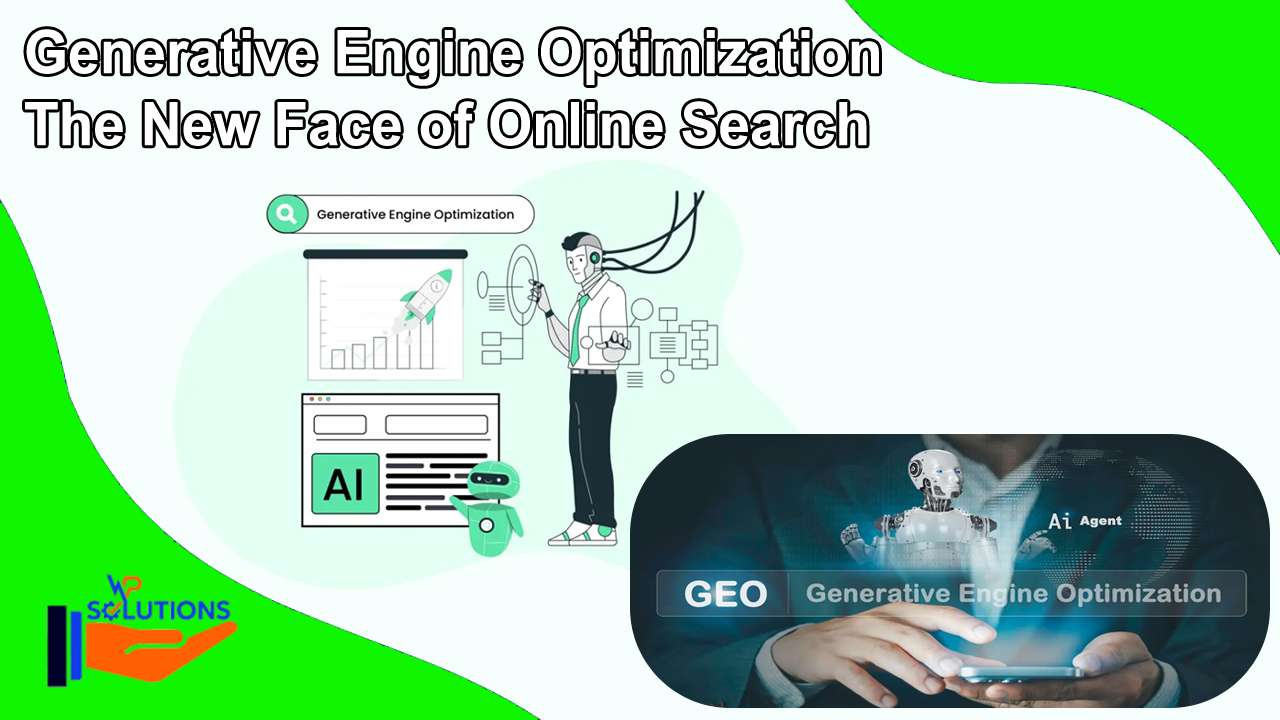The internet has changed the way of people look for information. For much years, Google and other search engines ruled the online world. They showed us results in the form of URLs, ads, and featured snippets. But things are changing fast.
Now, people are not just searching on Google. They are also using AI chatbots like ChatGPT, Gemini, or Perplexity. These systems do not give ten blue links; they give direct answers. This shift is where Generative Engine Optimization (GEO) comes in.
Understanding What Generative Engine Optimization (GEO) Means
Table of Contents

Generative Engine Optimization is the process of preparing your content for AI-driven search engines. Instead of just ranking for keywords on search engines, GEO focuses on being the best answer when someone asks a chatbot or AI assistant.
In short, it is like SEO but for the age of AI search. GEO makes sure your business or website still shows up when AI tools give recommendations and answers.
How GEO Is Different From Traditional SEO
SEO is about ranking on Google, Bing, or Yahoo. You optimize for keywords, backlinks, and technical factors. GEO, on the other hand, is about training the AI to recognize your authority. It is less about keywords and more about trust, accuracy, and context.
In SEO, you might ask, “What keyword should I rank for?” In GEO, the question changes to, “What answer will AI engines give, and how can my content be part of it?”
Why GEO Matters More as AI Replaces Search Engines
People are now typing full questions into AI tools instead of searching for keywords. For example, instead of searching “best laptops 2025,” users ask ChatGPT: “Which laptop is best for students in 2025 under $1000?”
If your content is not prepared for this shift, you risk being invisible. GEO helps you stay visible in AI-driven answers, where fewer results are shown compared to Google’s long list of links.
The Core Principles of Generative Engine Optimization
To succeed in GEO, there are a few golden rules:
- Clarity matters: Write in simple, clear language so AI can understand easily.
• Context is king: Provide detailed, structured answers, not just ssurface-leveltext text. - Authority wins: AI systems pull answers from trusted sources. Build credibility in your niche.
Another principle is being human first. Just like good SEO balances algorithms and human readers, GEO must give answers that sound natural and truly help people.Lorem ipsum dolor sit amet, consectetur adipiscing elit. Ut elit tellus, luctus nec ullamcorper mattis, pulvinar dapibus leo.
Practical Ways to Optimize for GEO
There are some direct steps you can take to prepare your content for generative engines:
- Write content in a Q&A format so AI can lift it directly as an answer.
- Use long-form content that explains topics in depth.
- Add structured data and schema markup where possible.
- Focus on factual accuracy; AI systems avoid unreliable or outdated sources.
Also, think about how people phrase questions. Instead of short keywords, prepare your content for natural questions and conversational language.
GEO and the Role of Human Writers in the Age of AI

Many people fear that AI will replace human writers. But GEO proves the opposite: AI needs high-quality content to learn from. If nobody writes fresh, well-researched, and authentic content, AI will have nothing valuable to generate answers with.
That means human creativity, experience, and expertise are more valuable than ever. GEO is about working with AI, not fighting against it.
Challenges and Risks of Generative Engine Optimization
GEO is still very new, so there are challenges:
- Lack of rules: Unlike SEO, GEO does not yet have fixed best practices.
- Bias and errors: AI engines can sometimes give wrong answers.
- Competition for space: AI answers are short, so fewer brands can appear.
Businesses must experiment, test, and watch how AI engines change. The risk of doing nothing is much bigger than the risk of trying and adjusting along the way.
The Future of GEO: Where We Are Heading Next
Generative Engine Optimization is not just a buzzword. It is the future of digital visibility. As AI tools continue to replace traditional search, GEO will become a standard practice, just like SEO did 20 years ago.
In the future, we may see companies hire GEO specialists, just like they hire SEO experts today. Businesses that start learning and applying GEO now will be ahead of the curve when AI becomes the primary way people find answers.

